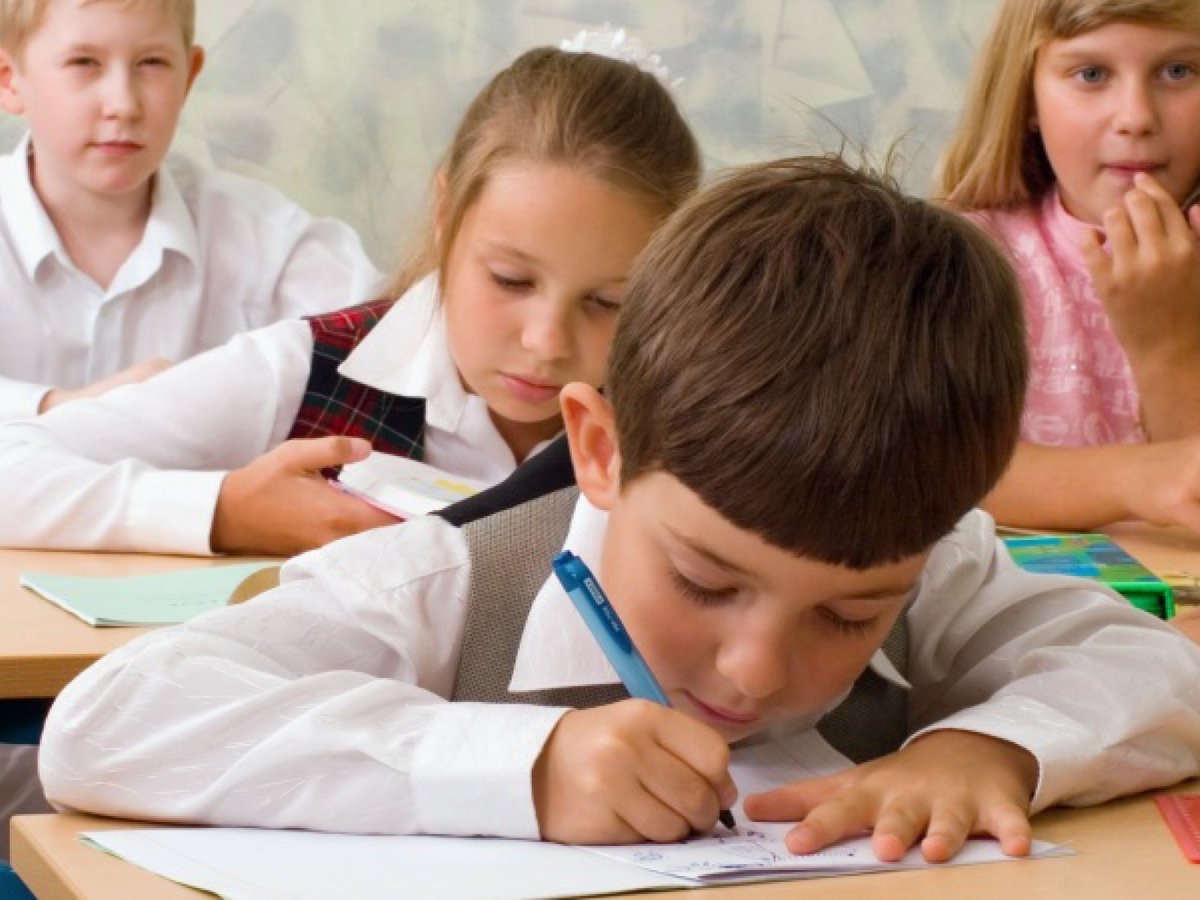
How to determine the readiness of a child to school? What should pay attention to parents? Read more in our article.
The content of the article
The readiness of the child to school at the age of 6-7 years can not always determine even the most attentive parents. For successful adaptation and training activities, there is not enough knowledge of letters, numbers, colors, etc. The overall picture of "school maturity" - the concept of multifaceted and includes various types of preparation.
Children's psychologist is engaged in the diagnosis of child development, which should appreciate the main aspects of readiness for the beginning of the school period. These sections include:
- Psychological - general formation of readiness for changing the circle of classes and responsibilities, both in the family and the children's team.
- Emotional is a decrease in impulsive reactions, the ability to perform certain tasks, not always causing interest.
- Intellectual - Development of perception, concentration of attention, analytical thinking, logical memorization, reproduction ability, development of coordination of movements and shallow motility.
- Social - the need for communicating with peers, the ability to follow the norms of behavior in children's groups, the perception of an adult, as a teacher.
Based on the highlighted directions of development, special test tasks are created to determine the degree of readiness of children to school.
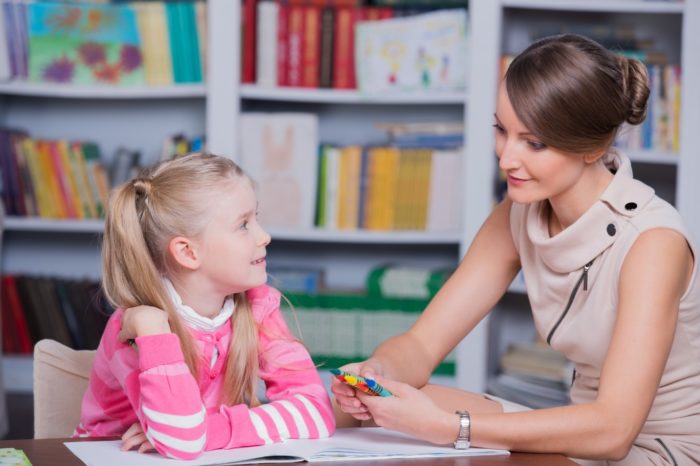
Consultation of a children's psychologist
Diagnosis of psychological and emotional readiness
Check involves an assessment of the child's ability to change the daily schedule and requirements:
- Compliance with the regime of the day.
- Motivation for learning - the child must understand that it is necessary to go to school to get knowledge.
- Skills of self and group work.
- The ability to perceive the learning process, including critics, and finding ways to correct errors.
- Readiness for the completion of tasks requiring certain costs of time and strength.
Typically, testing is carried out in the form of a conversation with a child, during which, based on his responses, the psychological attitude of the child formed in the process of pre-school learning and family education is determined.
The conversation may consist of the following (or similar) questions:
- What is your name?
- How old are you?
- Do you have a brother or sister?
- Name moms and dad.
- What city do you live in?
- Name your home address.
- Name home and wild animals.
- What time of year fall leaves from trees?
- What table devices do you use?
- Why do children go to school?
- Who do you want to become when you grow up?
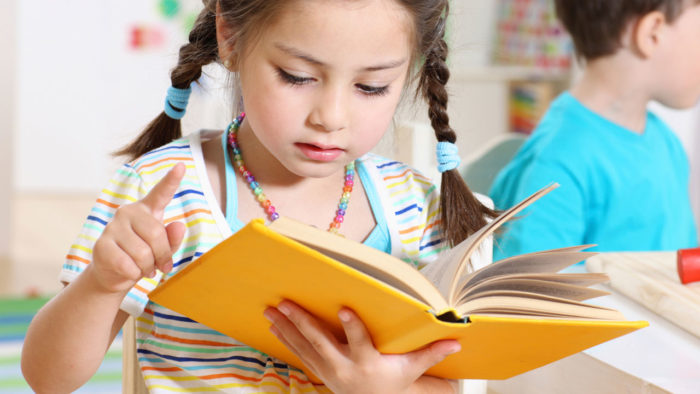
Psychological preparation of a child to school
Diagnosis of mental, intellectual readiness
Intellectual readiness for elementary school is based on the formation of mental processes - the development of the ability to generalize, comparing, classifying objects, allocating their general features.
The child must have certain knowledge of the environment, as well as a developed speech and desire for cognitive activity.
One of the main criteria for the development of the intellectual sphere is the testing of memory - a mental process directly related to mental activity.
- To estimate the level of mechanical memorization, an unsystematic set of words, for example: salt, ball, sky, elephant, river, brother, noise. After listening, the child must repeat the words he could remember. A normal indicator for children 6-7 years old is considered to be a memorization of 5 words out of 10 after the first reading, 9-10 words after 3-4 readings.
- To check associative memory according to the method of A. R. Luria, the child is proposed to remember the words and phrases with the help of the images that he does independently. Thus, the drawing becomes a means to play specified words. For example, a child gets 10-12 words and phrases - a car, a dark forest, a sunny day, a cat, a noisy game, a cheerful man, frost, a strong wind, and makes simple drawings to each word. After 1-1.5 hours, the child again show his drawings, for which he should call words and phrases.
- To evaluate the visual memory, the child is invited alternately to consider 2 simple images, and then on an empty sheet to reproduce all the stored lines from each part. As a result, the number of correctly depicted lines is determined. The correct is also considered to be the line, length and location of which is slightly different from the original. The resulting indicator is considered the amount of child's visual memory.
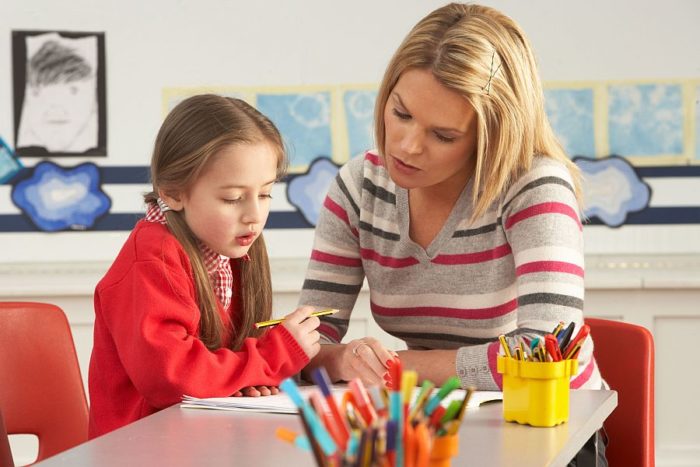
Memory check in determining the level of intellectual development
No less important component of intellectual development is a figurative and logical thinking, the development of speech and vocabulary of the preschooler.
- The determination of verbal-logical thinking is carried out as follows. The child shows a complicated image and ask to tell what he sees. This technique gives an idea of \u200b\u200bhow correctly the meaning of the picture is understood whether the child is able to allocate the main thing, notice the details. In addition, in the process of the story, the development of speech and vocabulary reserve of the preschooler is determined.
- A more complex option is to identify the sequence of events. The child suggests to consider several plot pictures (from 4 to 6), logically build them and tell how events developed. Such a test allows you to additionally assess the understanding of the preschooler with causal relationships between objects.
- Thinking activities are also assessed by the ability to classify. The child must compile groups from the cards offered to him with images. In this case, groups can be formed on various features: color, size, appointment of objects, situational features.
- The method of finding opposites is to check the general knowledge of the child and his vocabulary stock. The child is offered a simple or more complex word to which he should pick up the opposite as possible, for example, cold - hot, day - night, close - far away, bright - dim, love - hatred, etc.
- If the child goes to the school with a complicated program, can be used a technique to evaluate complex thought processes. Method Zeigarnik based on the interpretation of proverbs. The child is asked to listen to a proverb, and then explain the two options, one of which corresponds to the meaning of the proverb, and the second - no. For example, for saying "you will not extend and fish from the pond without labor" is used: "To perform any business, you need to work hard" and "In the summer you can fish in the pond." The child must choose one of the phrases and explain why it is appropriate to the proverb. The choice and the course of the child's thinking clearly demonstrate what signs he pays attention to the analysis of the situation.

Assessment of language development and vocabulary building
Diagnosis of social readiness
Social adaptation is one of the biggest difficulties in the child's contact with the new team.
Child's readiness for school in social terms it involves the need to communicate with their peers, understanding the new role of the student in the school environment, respect for adults - teachers, support staff.
The child should have the following skills:
- Communicating with children and adults differ in character and behavior of the usual circle of friends.
- Ability to work in a team.
- Understanding the need to obey and respect their elders.
- Ability to defend their own opinion when dealing with peers.
- The ability to find a solution to the dispute.
Parents need to understand that the child's social skills can not be developed in a moment. Learning to communicate with children and adults should be started at an early age, constantly explaining to the child as necessary to act in certain situations.
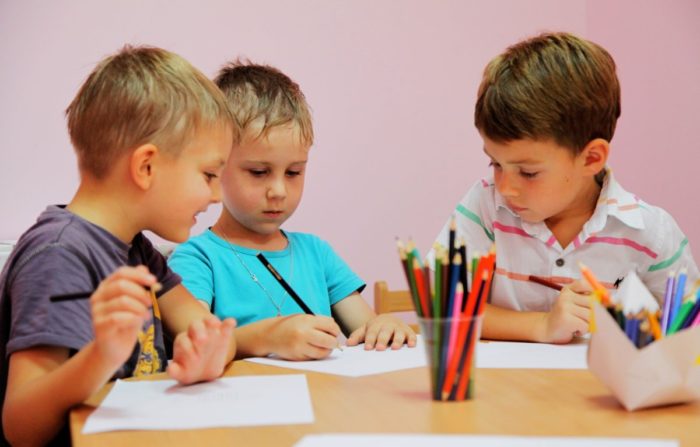
Checking the development of social skills
What parents need to pay attention to: tips
In order not to injure the psyche of the child and avoid difficulties with learning in elementary school, parents need to soberly assess the overall level of development and training preschooler.
The child is not ready for school, if the specialist indicates the following psycho-emotional problems:
- verbalism - with a high level of development of speech, large vocabulary and a great memory for the child is not able to children and adults cooperate. These children can not follow the learning process, can not work on the model is not able to perform the task of a teacher request.
- Anxiety - The child shows a constant fear of making a mistake, which will lead to adults dissatisfaction. Progressive anxiety can grow into a complex of "loser", reduce self-esteem and desire for self-realization.
- Demonstration - The child exhibits an increased desire for universal attention and recognition, is trying to be in the center of events by all means. This is usually the result of the absence of praise and encouragement from parents and other adults.
In the presence of such problems, a big mistake will assume that the child will turn out and cope. You must admit that you need qualified assistance.
The best solution will be a set of measures, including work with a children's psychologist, correction of the situation and behavior in the family.
